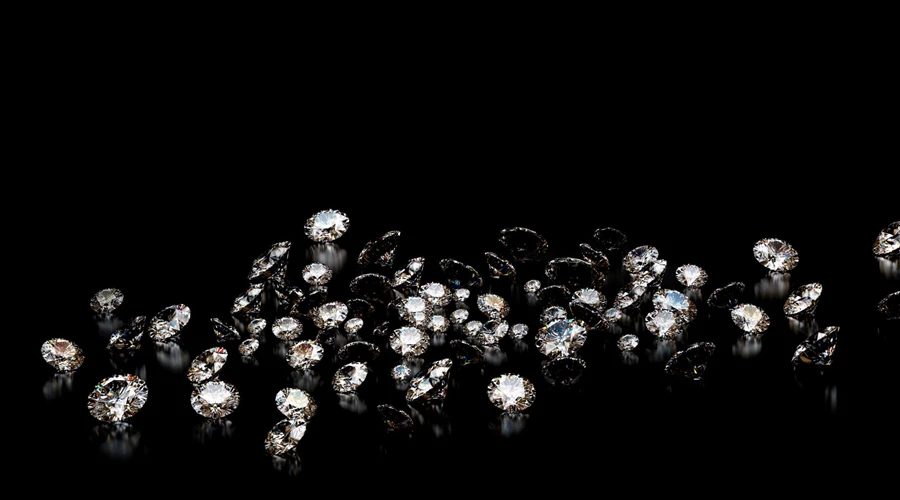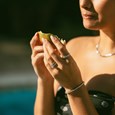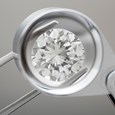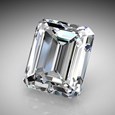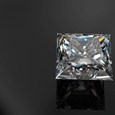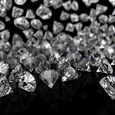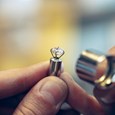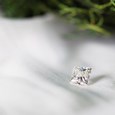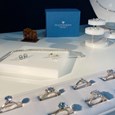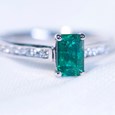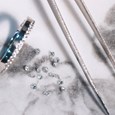Sign up for our Newsletter
Diamonds 102
March 05 2022
After posting our Diamonds 101 we asked you on Instagram if you wanted a part 2 with more detail and you said yes, so here it is!
Diamond Certificate
Often referred to as the 5th C - along with the well-known 4C’s: cut, clarity, colour and carat - a diamond certificate is essential when buying diamonds. When you purchase a diamond, you should always make sure it is certified by an Internationally recognised Diamond Laboratory: we recommend GIA as they’re known to be the strictest and most consistent when it comes to grading diamonds.
We always recommend that diamond certificates are independent of the company selling the diamond. For example, companies like Diamonds Factory and Vashi sell ‘Self-Certified’ diamonds; meaning they can set the 4C’s to whatever they like. The retailers that do this tend to above self-certify their diamonds to increase their profit margins. Because of this, it’s crucial that a diamond is certified through an unbiased, independent laboratory.
If you’re wondering, certified means to confirm formally as true, accurate or genuine: to guarantee as meeting a standard. In the case of diamonds, being certified means that a diamond is verified as being either 100% natural or ‘enhanced’, that the quality of the diamond meets a certain standard, in the opinion of a qualified gemologist.
A certificate tells you about the gems’: shape and dimensions, carat weight, colour and clarity grades, the standard of finish (for example polish, symmetry and girdle width) and, in the case of Round Brilliant diamonds, cut grade.
Diamond Score
At Quality Diamonds, we’ve developed the diamond score - a method of scoring each diamond that takes into account the 4C’s as well as the following attributes: the gemological laboratory that certified the diamond, table percentage, depth percentage, polish, symmetry, fluorescence, girdle and length to width ratio.
What we do is give every diamond a score out of 10 for each of the 12 attributes. You’re then given a score between 1 and 10 for each diamond, so you can easily see compare diamonds rather than going into detail which takes much longer if you don’t know much about diamonds.
Conflict-Free Diamonds
There are diamonds that are mined and shipped without any connection to rebel or terror groups. Diamonds that do have these connections are known as conflict diamonds or blood diamonds, they originate from war-torn areas and are illegally traded.
Luckily now over 99% of diamonds are conflict-free due to the Kimberley Process Certification Scheme being put into place in 2002. All diamonds sold by Quality Diamonds have been obtained from suppliers working within this scheme.
Jewellery Valuations
A valuation is traditionally given with jewellery and describes in detail the item purchased and the value it may cost to replace if lost or stolen. Your insurance company may require a valuation in order to add it to your insurance, so remember to keep it safe, along with the certificate, if you have one.
Something to bear in mind, the Jewellery Valuation is not indicative of the value of your jewellery if you decide to sell it. This is a common misconception. The value stated on the valuation is usually higher than the purchase price. This is to ensure you will always be able to replace your treasured item with an item of at least the same quality if lost or stolen.
Take a deep dive into diamond knowledge here.
If you wish to learn more about our Bespoke services, click here.
If you wish to contact us, click here.
Find us on Instagram @QualityDiamonds
-
Ethically Sourced Diamonds
-
Handmade in the UK
-
FREE Shipping Worldwide
-
60 Day Returns

